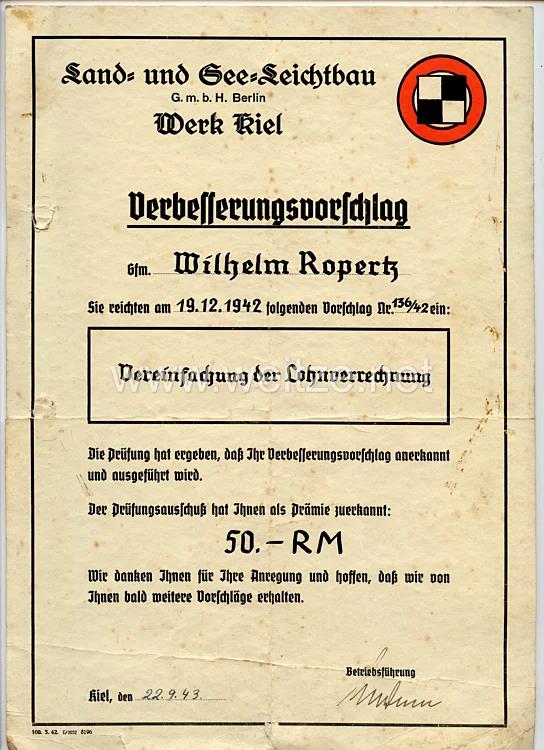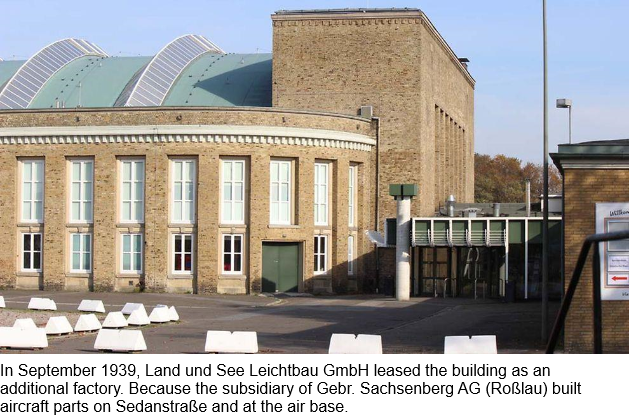In 1936, the Gebr. Sachsenberg AG in Berlin, a machine and later shipbuilding company, founded the Land und See Leichtbau GmbH with plants in Kiel and at the Neumünster air base, where the Leichtbau GmbH was located in the "cattle auction hall" (today's Holstenhalle) from 1939 operated an aircraft repair shop. The first branch of the Berlin company was built at Sedanstraße 19-21. By order of the Nazi authorities, Land und See also employed concentration camp prisoners as forced laborers during the Second World War. Alongside ELAC, Franz Rohwer, Sörensen & Köster, AEG and Drägerwerke, Land und See was the city's most important armaments company. How many works there were exactly is not yet clear. The Sedanstraße, Rendsburger Straße (2x) and Schützenstraße plants are well known. However, works up to Roman VI were specified in the lists.
In 1944, Land und See in Neumünster had 2,328 employees, many of whom were forced labourers. In 1942, for example, 392 prisoners of war from Russia and 81 prisoners of war from France were counted by land and sea. While the Russians were accommodated in the Wittorf camp, the French were housed in the Rendsburger Straße 133/139 camp. Unfortunately, the information on foreign workers is very incomplete. What is clear, however, is that Eastern workers had to live in a barracks on Sedanstrasse and that a large group of prisoners of war from the Netherlands also had to work on land and sea. A list of the foreign camps in Neumünster (i.e. including prisoners of war) from the employment office from July 1944 demonstrates the distribution of foreign forced laborers on land and sea. In the first camp with a capacity of 500 people there were 452 people, in the second camp with a capacity of 550 people there were 543 people. The camps were packed with 1,000 forced laborers. Bad conditions must have prevailed. One of the camps was the Christian School at Christianstraße 23, which no longer exists today. At this point there is an ugly parking deck today.
In February 1944, the factory apparently requested masses of "workers from the East" from the mayor in order to keep up production for "total war":
"...I still have very considerable needs from the company Land- und See-Leichtbau GmbH... and the railway, which, however, create their own accommodation options."
On November 6th, 1944 there was an air raid on the residential camp von Land und See, Rendsburgerstr. 133/139. It was hit by 14 high-explosive bombs, killing two Italian workers and completely destroying four barracks.




